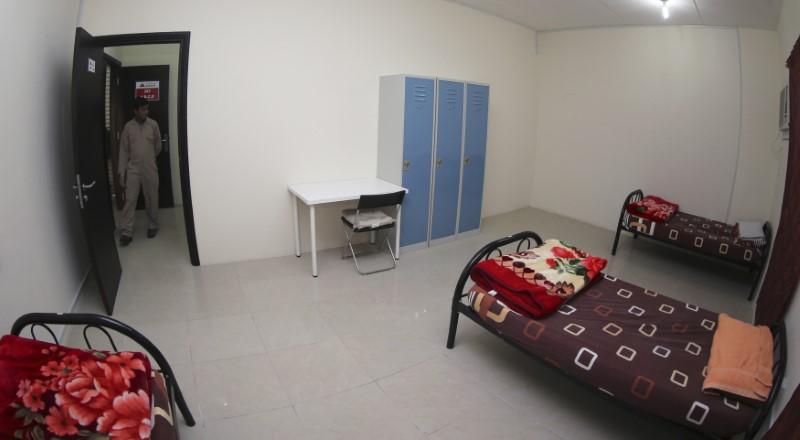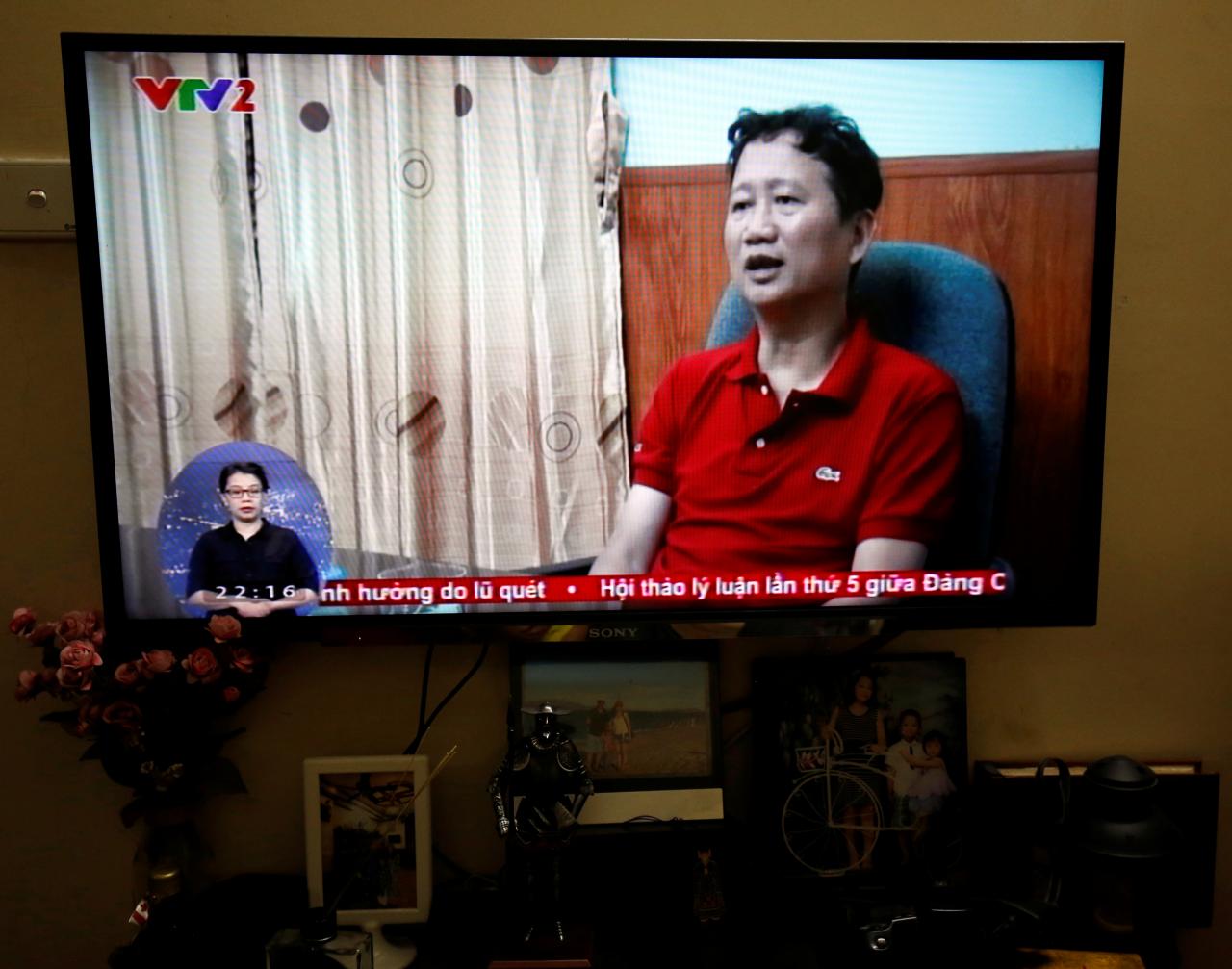Qatar’s ruler has introduced a law giving broad protection to tens of thousands of foreigners working as maids, cooks, cleaners and nannies, addressing some concerns long highlighted by human rights groups.
The new rules on foreign domestic staff mandate a maximum of 10 hours per working day with breaks for prayer, rest and eating, along with three weeks of severance pay at the end of their contracts.
They limit the working age to between 18 and 60, stipulate three weeks of annual vacation and order that employers provide proper food and medical care.
Like other wealthy Gulf Arab states, Qatar hosts tens of thousands of mostly female domestic workers, mostly from the Philippines, South Asia and East Africa.
The measures appear to be the first in the gas-producing country to codify the rights of these employees. State news agency QNA said the measure was promulgated by Sheikh Tamim bin Hamad al-Thani and was effective immediately.
Human Rights Watch and Amnesty International have long complained that Gulf states do not properly regulate working conditions for low-income residents helping tend homes or toiling at omnipresent construction sites.
They say excessively long hours and insufficient flexibility to change contracts or return home contravene international labor laws and deprive workers of their human rights.
Qatar has been under special scrutiny in the run-up to the 2022 soccer World Cup, which it will host.
Qatar’s ruler has introduced a law giving broad protection to tens of thousands of foreigners working as maids, cooks, cleaners and nannies, addressing some concerns long highlighted by human rights groups.
The new rules on foreign domestic staff mandate a maximum of 10 hours per working day with breaks for prayer, rest and eating, along with three weeks of severance pay at the end of their contracts.
They limit the working age to between 18 and 60, stipulate three weeks of annual vacation and order that employers provide proper food and medical care.
Like other wealthy Gulf Arab states, Qatar hosts tens of thousands of mostly female domestic workers, mostly from the Philippines, South Asia and East Africa.
The measures appear to be the first in the gas-producing country to codify the rights of these employees. State news agency QNA said the measure was promulgated by Sheikh Tamim bin Hamad al-Thani and was effective immediately.
Human Rights Watch and Amnesty International have long complained that Gulf states do not properly regulate working conditions for low-income residents helping tend homes or toiling at omnipresent construction sites.
They say excessively long hours and insufficient flexibility to change contracts or return home contravene international labor laws and deprive workers of their human rights.
Qatar has been under special scrutiny in the run-up to the 2022 soccer World Cup, which it will host.
Qatar’s ruler has introduced a law giving broad protection to tens of thousands of foreigners working as maids, cooks, cleaners and nannies, addressing some concerns long highlighted by human rights groups.
The new rules on foreign domestic staff mandate a maximum of 10 hours per working day with breaks for prayer, rest and eating, along with three weeks of severance pay at the end of their contracts.
They limit the working age to between 18 and 60, stipulate three weeks of annual vacation and order that employers provide proper food and medical care.
Like other wealthy Gulf Arab states, Qatar hosts tens of thousands of mostly female domestic workers, mostly from the Philippines, South Asia and East Africa.
The measures appear to be the first in the gas-producing country to codify the rights of these employees. State news agency QNA said the measure was promulgated by Sheikh Tamim bin Hamad al-Thani and was effective immediately.
Human Rights Watch and Amnesty International have long complained that Gulf states do not properly regulate working conditions for low-income residents helping tend homes or toiling at omnipresent construction sites.
They say excessively long hours and insufficient flexibility to change contracts or return home contravene international labor laws and deprive workers of their human rights.
Qatar has been under special scrutiny in the run-up to the 2022 soccer World Cup, which it will host.
Qatar’s ruler has introduced a law giving broad protection to tens of thousands of foreigners working as maids, cooks, cleaners and nannies, addressing some concerns long highlighted by human rights groups.
The new rules on foreign domestic staff mandate a maximum of 10 hours per working day with breaks for prayer, rest and eating, along with three weeks of severance pay at the end of their contracts.
They limit the working age to between 18 and 60, stipulate three weeks of annual vacation and order that employers provide proper food and medical care.
Like other wealthy Gulf Arab states, Qatar hosts tens of thousands of mostly female domestic workers, mostly from the Philippines, South Asia and East Africa.
The measures appear to be the first in the gas-producing country to codify the rights of these employees. State news agency QNA said the measure was promulgated by Sheikh Tamim bin Hamad al-Thani and was effective immediately.
Human Rights Watch and Amnesty International have long complained that Gulf states do not properly regulate working conditions for low-income residents helping tend homes or toiling at omnipresent construction sites.
They say excessively long hours and insufficient flexibility to change contracts or return home contravene international labor laws and deprive workers of their human rights.
Qatar has been under special scrutiny in the run-up to the 2022 soccer World Cup, which it will host.
Qatar’s ruler has introduced a law giving broad protection to tens of thousands of foreigners working as maids, cooks, cleaners and nannies, addressing some concerns long highlighted by human rights groups.
The new rules on foreign domestic staff mandate a maximum of 10 hours per working day with breaks for prayer, rest and eating, along with three weeks of severance pay at the end of their contracts.
They limit the working age to between 18 and 60, stipulate three weeks of annual vacation and order that employers provide proper food and medical care.
Like other wealthy Gulf Arab states, Qatar hosts tens of thousands of mostly female domestic workers, mostly from the Philippines, South Asia and East Africa.
The measures appear to be the first in the gas-producing country to codify the rights of these employees. State news agency QNA said the measure was promulgated by Sheikh Tamim bin Hamad al-Thani and was effective immediately.
Human Rights Watch and Amnesty International have long complained that Gulf states do not properly regulate working conditions for low-income residents helping tend homes or toiling at omnipresent construction sites.
They say excessively long hours and insufficient flexibility to change contracts or return home contravene international labor laws and deprive workers of their human rights.
Qatar has been under special scrutiny in the run-up to the 2022 soccer World Cup, which it will host.
Qatar’s ruler has introduced a law giving broad protection to tens of thousands of foreigners working as maids, cooks, cleaners and nannies, addressing some concerns long highlighted by human rights groups.
The new rules on foreign domestic staff mandate a maximum of 10 hours per working day with breaks for prayer, rest and eating, along with three weeks of severance pay at the end of their contracts.
They limit the working age to between 18 and 60, stipulate three weeks of annual vacation and order that employers provide proper food and medical care.
Like other wealthy Gulf Arab states, Qatar hosts tens of thousands of mostly female domestic workers, mostly from the Philippines, South Asia and East Africa.
The measures appear to be the first in the gas-producing country to codify the rights of these employees. State news agency QNA said the measure was promulgated by Sheikh Tamim bin Hamad al-Thani and was effective immediately.
Human Rights Watch and Amnesty International have long complained that Gulf states do not properly regulate working conditions for low-income residents helping tend homes or toiling at omnipresent construction sites.
They say excessively long hours and insufficient flexibility to change contracts or return home contravene international labor laws and deprive workers of their human rights.
Qatar has been under special scrutiny in the run-up to the 2022 soccer World Cup, which it will host.
Qatar’s ruler has introduced a law giving broad protection to tens of thousands of foreigners working as maids, cooks, cleaners and nannies, addressing some concerns long highlighted by human rights groups.
The new rules on foreign domestic staff mandate a maximum of 10 hours per working day with breaks for prayer, rest and eating, along with three weeks of severance pay at the end of their contracts.
They limit the working age to between 18 and 60, stipulate three weeks of annual vacation and order that employers provide proper food and medical care.
Like other wealthy Gulf Arab states, Qatar hosts tens of thousands of mostly female domestic workers, mostly from the Philippines, South Asia and East Africa.
The measures appear to be the first in the gas-producing country to codify the rights of these employees. State news agency QNA said the measure was promulgated by Sheikh Tamim bin Hamad al-Thani and was effective immediately.
Human Rights Watch and Amnesty International have long complained that Gulf states do not properly regulate working conditions for low-income residents helping tend homes or toiling at omnipresent construction sites.
They say excessively long hours and insufficient flexibility to change contracts or return home contravene international labor laws and deprive workers of their human rights.
Qatar has been under special scrutiny in the run-up to the 2022 soccer World Cup, which it will host.
Qatar’s ruler has introduced a law giving broad protection to tens of thousands of foreigners working as maids, cooks, cleaners and nannies, addressing some concerns long highlighted by human rights groups.
The new rules on foreign domestic staff mandate a maximum of 10 hours per working day with breaks for prayer, rest and eating, along with three weeks of severance pay at the end of their contracts.
They limit the working age to between 18 and 60, stipulate three weeks of annual vacation and order that employers provide proper food and medical care.
Like other wealthy Gulf Arab states, Qatar hosts tens of thousands of mostly female domestic workers, mostly from the Philippines, South Asia and East Africa.
The measures appear to be the first in the gas-producing country to codify the rights of these employees. State news agency QNA said the measure was promulgated by Sheikh Tamim bin Hamad al-Thani and was effective immediately.
Human Rights Watch and Amnesty International have long complained that Gulf states do not properly regulate working conditions for low-income residents helping tend homes or toiling at omnipresent construction sites.
They say excessively long hours and insufficient flexibility to change contracts or return home contravene international labor laws and deprive workers of their human rights.
Qatar has been under special scrutiny in the run-up to the 2022 soccer World Cup, which it will host.














